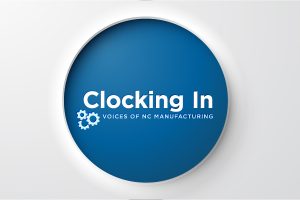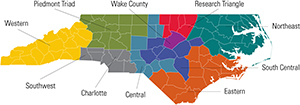With 2018 well underway, are students on track to meeting their mid-term goals? And, are colleges and their staff prepared to offer students the support they need?
As a member of the Industry Expansion Solutions Evaluation Team at NC State, I’ve worked with many state, local and federally funded grant programs that include student support components built into their program strategies. Creating new and innovative support structures, and working with existing on-campus resources, can help students overcome some common barriers to academic participation and success.
Oftentimes, when our team is evaluating grants, student outcomes play a huge role in how success is measured by the funder. Here are a few student support strategies I’ve seen successfully implemented, that could be replicated at your own institution.
While some of these offerings might take more planning to develop (like fellowship programs), others (like financial wellness seminars) are easy to implement, and provide immediate benefit to students!
| Student Barrier | Examples of Grant Funded Support Strategies |
|---|---|
| Academic Support | Embedded Tutors/Coaches/Advisors who specialize in specific course topics work parallel to faculty while the course is being taught. Provide supplemental aids and study halls. |
| Faculty collaborate to develop online study portals with quizzes, flashcards and supplemental aids stored in a learning management system. | |
| Early Alert Systems are used to track student absences and classroom performance, so that a dedicated advisor/coach can reach out to them early in the semester and help them develop support systems. | |
| Financial Constraints | Partnerships with local banks can provide financial literacy and wellness seminars to students. Other programs may find benefit in partnering with the internal Financial Aid office to provide guidance on FAFSA and other means of funding for college. |
| Fellowship programs provide tuition support to eligible students (e.g. URM students, STEM degree seekers). | |
| Personal and Career Guidance | Success Coaches or Career Coaches can cover a broad range of student support activities:making connections with local industry partners for apprenticeship/internship/ employment opportunities, interview and resume help, and/or mock interviews. |
| Mentorship | Research (pairing with faculty, or peer mentors volunteering specific subject areas/grade level cohorts, industry mentors in the field. |
Have you used a tactic that’s not mentioned here? What were the results?
Stay tuned for our next blog focused on funding opportunities for student support programs, and contact us if you already have a grant that needs evaluation support!
Dominick Stephenson is the Assistant Director, Research Development and Evaluation for North Carolina State University Industry Expansion Solutions. Dominick is responsible for managing evaluation functions throughout the project including client engagement, evaluation design, data collection, instrument design and report writing. His current work focuses on workforce development, community college and STEM programs and crosses over local, state and federal agencies. Dominick is a graduate of East Carolina University with an M.A.Ed. in Adult Education and a B.S.B.A. in Management Information Systems.




